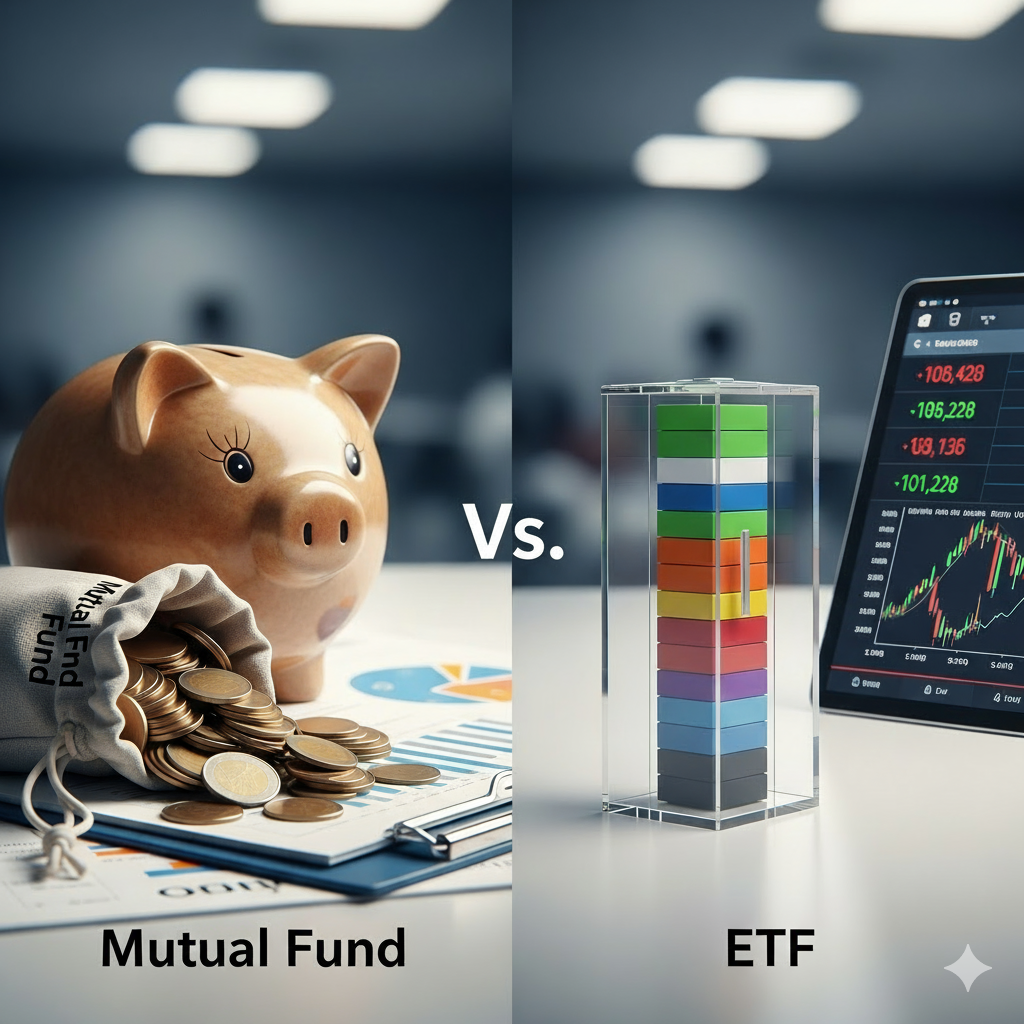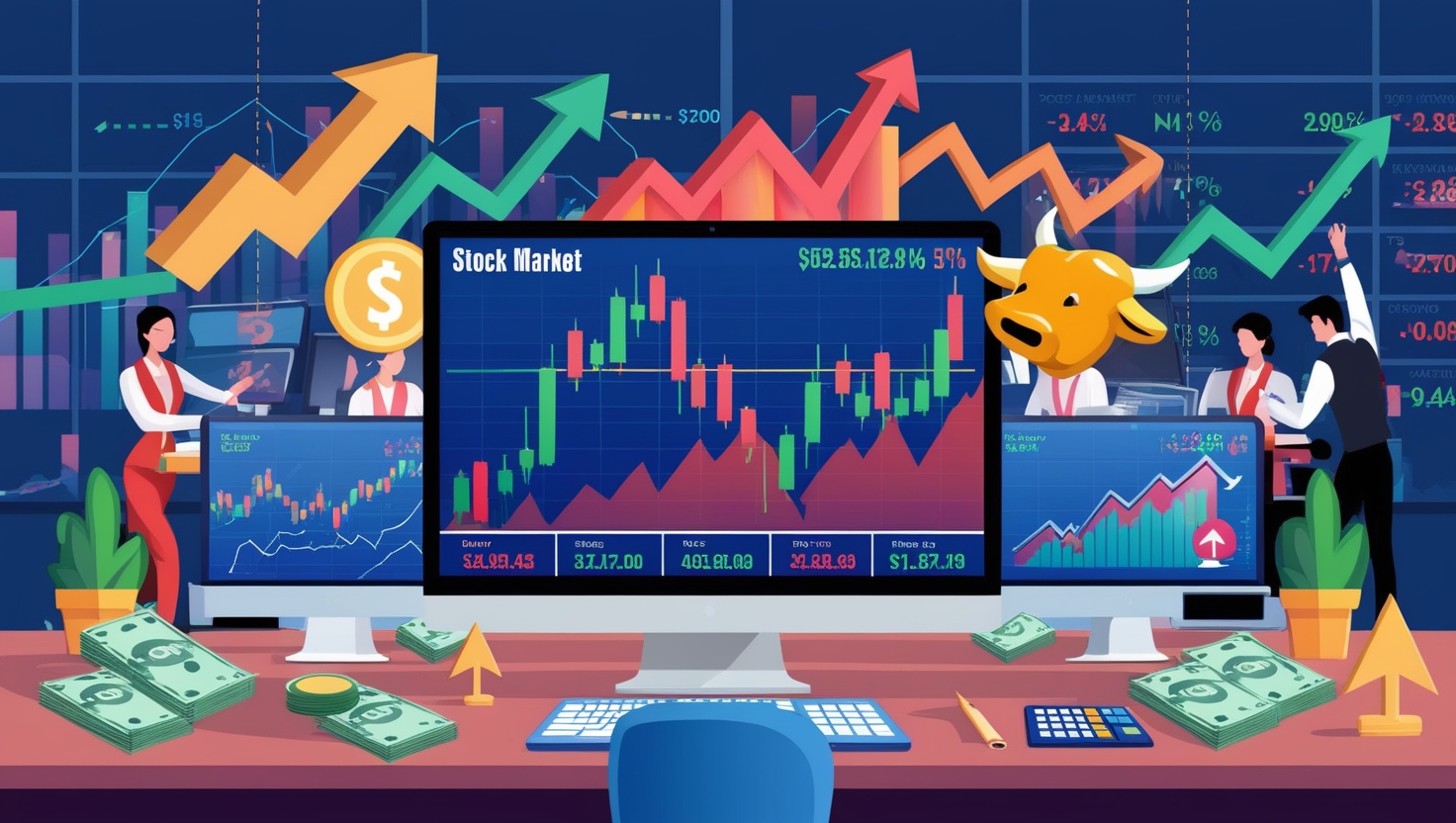
Mutual Fund
A mutual fund is a type of investment vehicle that pools money from multiple investors to invest in a diversified portfolio of stocks, bonds, money market instruments, and other assets. It is professionally managed by a fund manager.
Key Points:
- Trading Time:
- Mutual funds can only be bought or sold once a day at their Net Asset Value (NAV), which is calculated after the market closes.
- Pricing:
- Expense Ratio:
- Generally have a higher expense ratio (the annual cost of managing the fund) compared to ETFs, especially actively managed funds.
- Management:
- Most mutual funds are actively managed, where a fund manager makes investment decisions to try and outperform the market. There are also passively managed mutual funds, like index funds.
- Diversification:
- Provide inherent diversification by investing in multiple securities within one fund.
- Liquidity:
- Can be less liquid as you can only buy or sell at the end of the day’s NAV.
- Minimum Investment:
- Most mutual funds require a minimum investment amount (either as a lump sum or through a Systematic Investment Plan – SIP).
- Transparency:
- Disclose their holdings on a monthly or quarterly basis, making them less transparent than ETFs in real-time.
- Tax Treatment:
- Typically, when the fund manager buys and sells securities, capital gains are realized, which can be passed through to investors, potentially making them less tax-efficient.
- Exchange-Traded Fund (ETF)
- An ETF is a type of fund that trades on a stock exchange, much like individual stocks. It typically tracks a specific index (like the S&P 500), commodity, bond, or a basket of assets.
- Key Points:
- Trading Time:
- ETFs can be bought and sold throughout the trading day on a stock exchange, just like individual stocks. Their price fluctuates in real-time.
- Pricing:
- Their price changes throughout the day based on supply and demand. While they track their NAV closely, there can be slight differences (premiums or discounts).
- Expense Ratio:
- Generally have a lower expense ratio compared to mutual funds, especially index-tracking ETFs, due to their passive management style.
- Management:
- Most ETFs are passively managed, meaning they track a specific index and do not require an active fund manager to make constant investment decisions. Some actively managed ETFs do exist but are less common.
- Diversification:
- Like mutual funds, ETFs offer diversification by holding a basket of underlying securities.
- Liquidity:
- Offer high liquidity as they can be traded throughout the day on a stock exchange.
- Minimum Investment:
- You can buy as little as one share, making them highly accessible for smaller investors.
- Transparency:
- Disclose their holdings on a daily basis, making them highly transpare
Summary of Differens:
Both Mutual Funds and Exchange-Traded Funds (ETFs) are popular investment vehicles, but they have distinct differences that cater to different investor needs and preferences.
| Feature | Mutual Fund | ETF |
| Trading | Once a day at NAV | Throughout the day on a stock exchange, like shares |
| Pricing | Based on day-end NAV | Fluctuates throughout the day based on supply/demand |
| Expense Ratio | Typically higher (especially for active funds) | Typically lower |
| Management | Primarily actively managed (some passive also) | Primarily passively managed (index tracking) |
| Liquidity | Less liquid (traded once a day) | Highly liquid (traded throughout the day) |
| Transparency | Lower (monthly/quarterly holdings disclosure) | Higher (daily holdings disclosure) |
| Min. Investment | Usually requires a minimum investment amount | Can buy as little as one share |
| Tax Efficiency | Generally slightly less tax-efficient | Generally more tax-efficient |
Which One is Better?
The “better” choice depends on your investment style, goals, and preferences:
- Mutual funds are suitable for investors who prefer active management by a professional, don’t want to monitor daily market fluctuations, and prefer investing regularly through SIPs.
- ETFs are ideal for investors seeking lower costs, higher liquidity, the ability to trade intraday, and a preference for tracking a specific index.
Many investors find that a combination of both can be beneficial for a well-diversified portfolio. It’s always a good idea to consult a financial advisor to determine the best option for your specific


